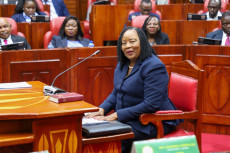The Kenyan comedy scene is experiencing a remarkable transformation, shifting from mainstream shows like Churchill Show to a vibrant digital landscape driven by young comedians. Artists such as Mwirigi, Mluo, Austin Mwigai, Obienji, and the immensely popular Crazy Kennar are redefining comedy through platforms like YouTube, Instagram, and TikTok. They are not only changing how comedy is distributed but also the type of humor that resonates with audiences, creating fresh, relatable, and socially conscious content that captures the essence of modern Kenyan society.
This shift from traditional media to digital platforms has opened new avenues for Kenyan comedians. Previously, aspiring comedians faced limited options: either join established shows like Churchill Show or struggle for visibility. Today, social media has democratized the field, allowing anyone with a smartphone and creativity to produce, upload, and promote their work, building audiences free from the constraints of television networks. This shift has leveled the playing field, enabling talented newcomers like Mwirigi, Obienji, and Austin Mwigai to reach wide audiences and achieve fame independently.
The success of online comedy can be attributed to its immediacy and relatability. These young comedians create short, punchy skits that reflect everyday Kenyan life, incorporating local slang, current social issues, and humorous takes on relationships and campus life. For example, Crazy Kennar has captured national attention with his relatable portrayals of daily challenges, from food shortages to humorous workplace dynamics.
His success illustrates how online content allows comedians to remain relevant and agile, attuned to the rapidly changing cultural and political landscape.
Moreover, the digital format enables these comedians to tackle issues that mainstream TV might shy away from. They can be more daring, critical, and satirical, addressing topics like unemployment, social injustice, and mental health in ways that feel authentic and unfiltered. These online comedians serve as modern-day griots, using humor to voice truths that might otherwise go unheard.
However, this digital revolution brings challenges. Monetizing online content can be complex, and many comedians struggle to make a living solely from their skits. While some secure sponsorship deals or advertising opportunities, others navigate the intricate landscape of social media algorithms, copyright issues, and content censorship. As more comedians enter the scene, distinguishing oneself becomes increasingly difficult, and some may feel pressured to follow trends rather than develop unique styles.
The success of digital comedians like Crazy Kennar also reflects a broader trend in Kenya’s media landscape: younger audiences are increasingly gravitating online. This shift suggests that the future of comedy lies with digital innovators who can meet the demands for speed, humor, and creativity from a tech-savvy audience. The challenge for comedians will be to balance quantity with quality, ensuring their work remains impactful in an ever-crowded online space.
Kenya’s digital comedians are pioneering a new wave in comedy, reflecting the voices, experiences, and humor of a younger generation. Their rise demonstrates that talent and innovation can thrive beyond traditional platforms, inspiring audiences and reshaping perceptions of what Kenyan comedy can be. In a world where audiences seek connection and authenticity, this new era of Kenyan comedy proves that laughter is best served online, where everyone has a voice and a platform.










